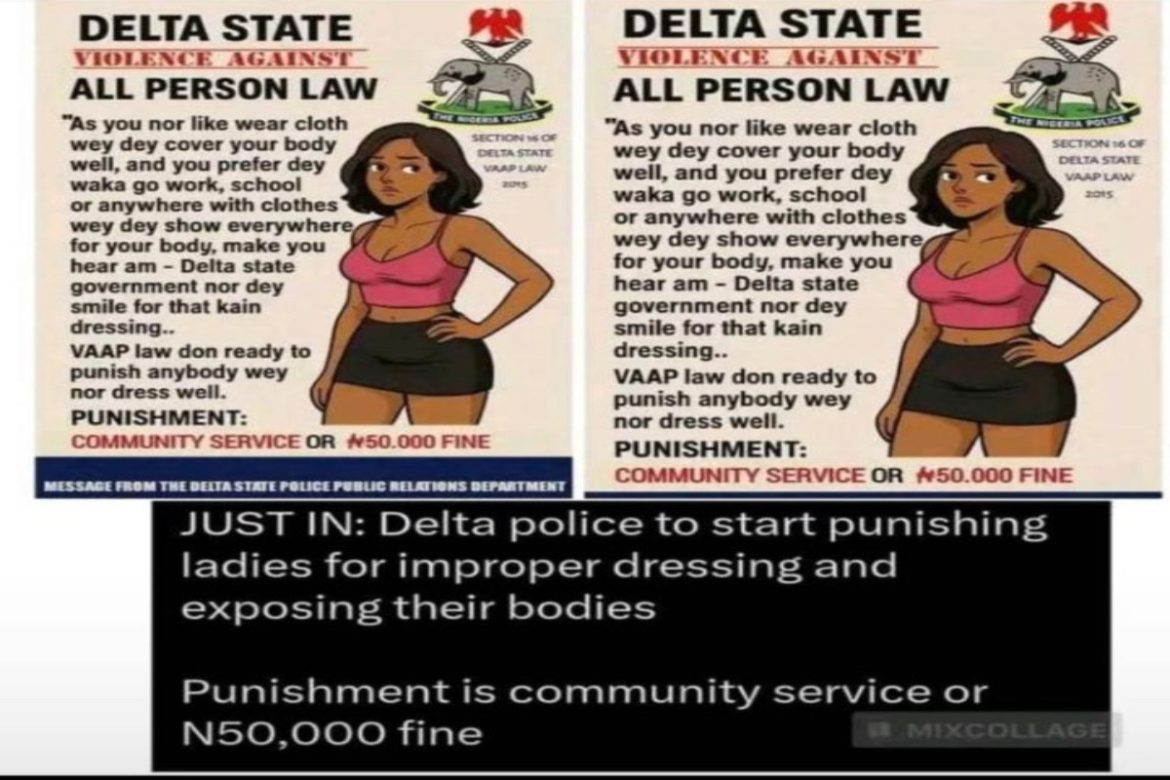The Delta State Police Command has announced plans to begin enforcing sanctions against women deemed to be dressing “improperly” in public a move critics argue infringes on personal freedoms and lacks legal basis.
According to a memo issued last Tuesday and obtained by press, state police personnel have been instructed to identify and apprehend women wearing “indecent” or “excessively revealing” attire. Offenders will be issued warnings or detained and transferred to correctional facilities for rehabilitation under the state’s Public Safety and Order Regulation, police sources say.
Spokesperson DSP Bright Edafe defended the move, citing rising concerns about public morality and safety:
“We have seen an increasing trend of provocative dressing, which in some instances has led to harassment or public disturbances. We are acting to uphold public decency.”
Officers have reportedly received a dress code guideline outlining specific criteria deemed inappropriate, including sleeveless tops, revealing shorts, and certain body-hugging fabrics.
The announcement has sparked immediate backlash from civil rights activists, legal experts, and women’s groups who describe the enforcement plan as both sexist and unlawful.
“There is no law in Nigeria that allows the police to arrest someone for their clothes,” said Boma Samuel, legal counsel for the Women’s Rights Network. “This is a gross violation of constitutional rights to personal liberty and freedom of expression.”
Activists argue the policy unfairly targets women, perpetuates gender stereotypes, and shifts blame onto victims of harassment rather than addressing offender behavior.
Political Reaction and Calls for Clarity
Several lawmakers have demanded clarification, questioning whether the state government has officially authorized the directive or if it stems solely from police discretion.
In a statement, Delta State Commissioner for Women Affairs, Mrs. Nancy Edeh, called for “proper community engagement and education,” warning against arbitrary enforcement that could undermine confidence in law enforcement.
Legal Challenge Possible- Lawyers suggest potential court action on grounds of constitutionality.
Public Dialogue- Civil society groups plan forums and campaigns to educate citizens on freedom of dress and personal rights.
Policy Uncertain- Police insist the measures are temporary while the state revises its public safety regulations; formal guidelines are reportedly being drafted.
Human rights observers say Delta’s proposal echoes wider debates on morality policing across Nigeria and Africa, raising uncomfortable questions about who decides what is “proper”, and whether enforcement disproportionately targets women.
As the enforcement deadline draws near, Delta residents particularly young women remain wary of police checkpoints and arbitrary detentions.
“We are law-abiding citizens,” said Mrs. Ada Onyekachi, a market trader in Asaba. “Our clothes don’t break any law. This feels like policing morality with a stick.”


